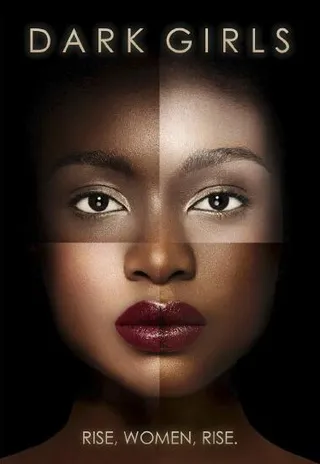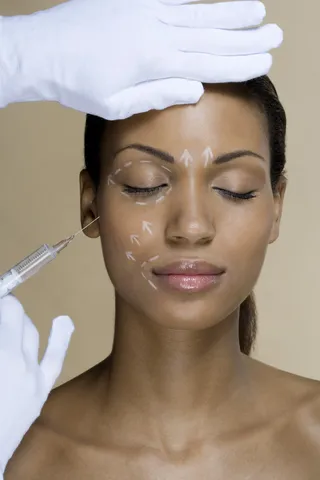The 411 on Skin Bleaching
How skin bleaching is bad for your skin and your soul.

1 / 9
Understanding Skin Bleaching and Its Dangers - Recently, Nigerian-Cameroonian pop musician Dencia has come under fire for launching Whitenicious, a line of skin bleaching products aimed for Black women. But she isn’t the only one: Skin-bleaching companies are a booming industry around the world. But do these products send the wrong message to women of color? Better yet: Are they even safe? — Kellee Terrell (@kelleent) (Photos from Left: Allison Joyce/Reuters, Whitenicious)

2 / 9
What Is Skin Bleaching? - Also called “skin-whitening,” skin bleaching is the act of using crèmes or other products to “brighten” and lighten the skin. In some cases, dermatologists will prescribe medication for age spots, acne scars or discoloration. But what drives this industry are people of color who want to lighten their skin over their entire body. (Photo: Lena Clara/Getty Images)

3 / 9
It’s a Booming Industry - It’s estimated that the skin bleaching industry rakes in billions of dollars each year. Skin bleaching is a global phenomenon and is extremely popular in India, China, Pakistan, Jamaica and numerous African countries such as Nigeria, Senegal and Togo. A recent report found that in Nigeria a whopping 77 percent of women use these products regularly. (Photo: REUTERS/George Mulala)

4 / 9
Racism and Colorism Drive Sales - It cannot be denied that racism, colorism and self-hate definitely drive the skin bleaching industry. For way too long, people of color, especially women, have been told that lighter is better and attractive; can bring you more dating and marriage prospects; and can bring more social mobility and acceptance. (Photo: David Waldorf/Getty Images)

5 / 9
How Does It Work? - It’s a gradual process that consists of applying these creams to the parts of the body that one wants to lighten. Over time, the crème reduces the melanin (color pigment) in the skin. (Photo: Erin Patrice O'Brien/Getty Images)
ADVERTISEMENT

6 / 9
Skin Bleaching Is Dangerous - These crèmes, especially over-the-counter lines, contain seriously harmful chemicals such as hydroquinone, mercury and other toxins that, with long-term use, cause birth defects, liver and kidney cancers, psychiatric issues and neurological problems. Also, they can cause rashes, burns and irreversible damage. A 2012 study also found that skin bleaching was linked to diabetes. (Photo: Patryce Bak/Getty Images)

7 / 9
You Are Beautiful the Way You Are - Is having lighter skin worth jeopardizing your health? While the world may bombard us with images that may make us feel ashamed of who we are, we must block out that negativity and celebrate who we are. Remember: All shades of Black are beautiful. (Photo: Larry Busacca/Getty Images)

8 / 9
(Photo: Duke Media, Urban Winter Entertainment)
Photo By Photo: Duke Media
